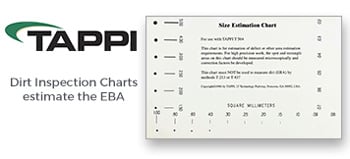Corrosive Wear Principles for Reduced Maintenance Costs in Pulp & Paper Mills, 1999 Engineering Conference Proceedings
William Schumacher
Armco Inc.
Middletown, OH
Maintenance departments in many industries are continually battling the daily fires that run costs up and productivity down. Many plants have equipment that must operate under wet or elevated temperature sliding conditions that can lead to accelerated wear of equipment. Pulp & Paper plants, for example, have ongoing maintenance concerns for filtrate tank bottoms due to entrapped abrasive debris that can erode through mild steel in a relatively short time. In continuous digesters, wear plates are needed to protect the tank bottoms of steaming vessels. Another area involves the wood yard where wet material causes rapid deterioration of chipper hoods.
Many paper mills generate their own power by utilizing coal-fired boilers. Coal handling equipment is often subjected to wet sliding conditions. These plants can have serious flow problems if an improper structural or wear material is selected. The use of mists to control fly ash volatiles results in a particularly severe corrosive/abrasive condition. Vibrating screens, chutes, surge bin feeders, conical distributors, screw conveyors and cyclones are some of the components that must resist the ravages of corrosion and wear.
This paper will address many of the issues that affect the life of paper mill components under wet sliding conditions. Environmental effects and material effects will be examined. Since the material of construction is most times the easier to change, the paper will concentrate on this subject. Such factors as: hardness, surface roughness, type of corrodent, and material of construction will be explored. An attempt has been made to separate out the effects of corrosion, abrasion, and the synergistic effects of both acting together. The results indicate that a low cost solution is possible especially if life cycle costing is considered. Both controlled laboratory studies and real world service evaluations will be presented.





